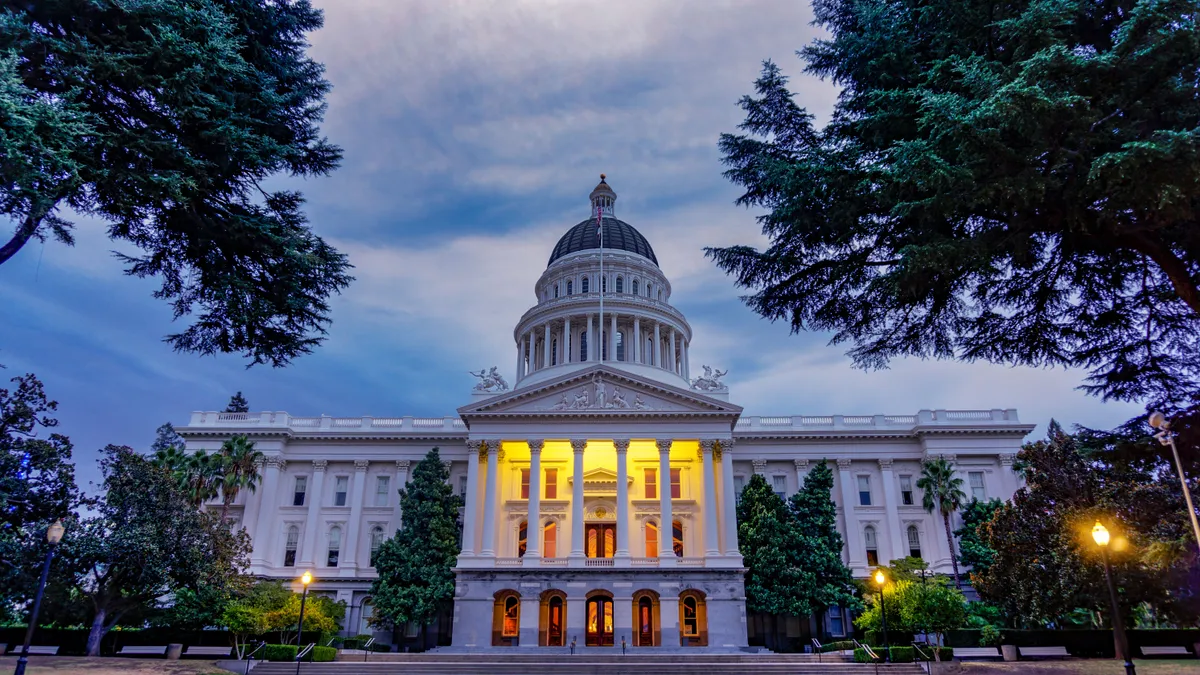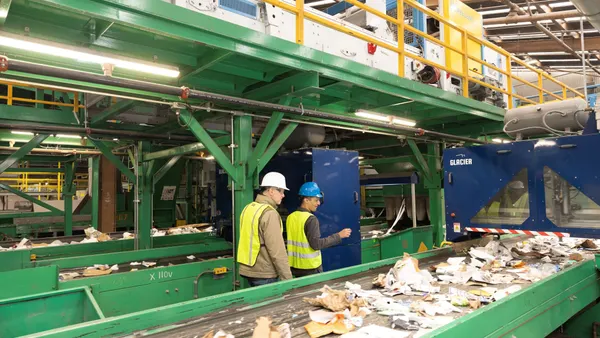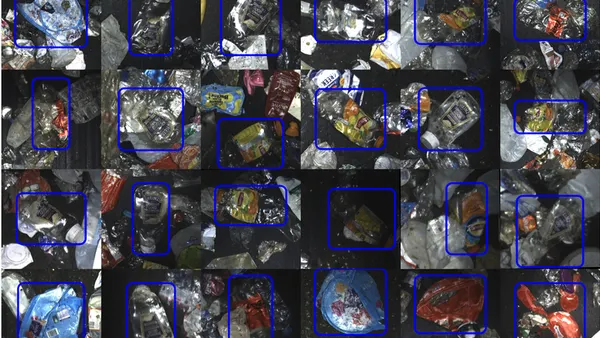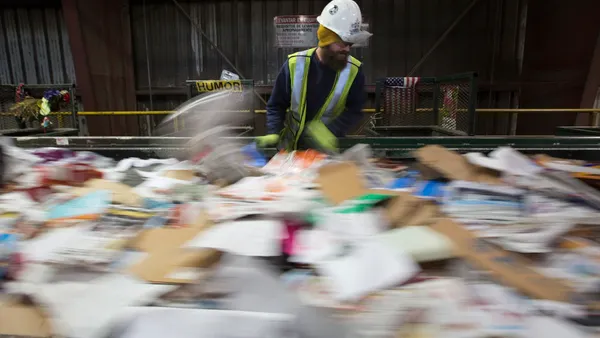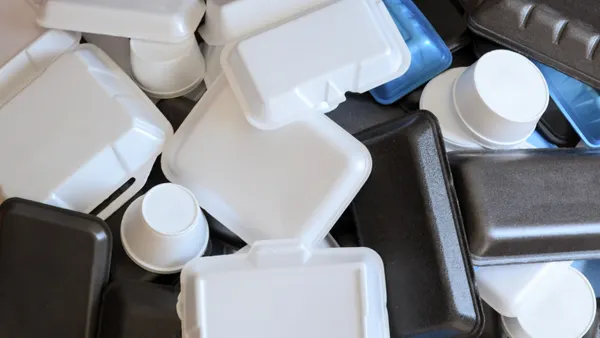UPDATE: June 9, 2021: Two packaging-related bills, SB 54 and AB 1371, will no longer move forward in California this year. State Sen. Ben Allen tabled the controversial SB 54 in May to negotiate further with stakeholders, according to the San Francisco Chronicle. More than two dozen groups, including several packaging and product manufacturing associations, currently oppose it. Packaging manufacturers were also among those that opposed AB 1371, which would have prohibited online retailers from using some types of single-use plastic packaging, such as expanded polystyrene foam peanuts or plastic mailers.
Numerous recycling-related bills are still active, such as SB 38, which would require beverage container distributors to form a stewardship organization to handle the state’s bottle deposit program, and AB 1454, which aims to increase payments to bottle recycling centers. Also still in play are labeling bill SB 343, postconsumer plastic bill AB 478 and plastic scrap export bill AB 881.
California had until June 4 to pass bills out of their chamber of origin, before the legislative session ends Sept. 10.
Dive Brief:
- March: California lawmakers have reintroduced SB 54, a bill that would require all single-use disposable packaging, including food service packaging, to be recyclable or compostable by January 2032. The bill debuted as part of a unified Democrat-led package of almost a dozen other plastic waste-related bills on March 9.
- As currently written, the bill leaves out a major part of previous versions, which had required single-use plastic packaging to have a 75% recycling or composting rate by 2032. Bill sponsors anticipate SB 54 will undergo more updates as the legislative session goes on.
- Other new bills aim to standardize recycling labeling on packaging, set minimum recycled content standards for thermoform packaging, and prohibit the state from counting exported plastic scrap in its recycling rate calculations if it is landfilled, burned or dumped.
Dive Insight:
California lawmakers intend for this package of bills to be a "coordinated, multi-faceted approach” to addressing climate change and achieving the state’s goal of recycling, composting or reducing solid waste by 75%, they said in a news release announcing the package — a goal the state had hoped to, but did not, meet in 2020.
State lawmakers have had different ideas on how to achieve those goals over the years, but the package of bills is a sign that lawmakers are starting to strategize in a more streamlined way, said Heidi Sanborn, executive director of the National Stewardship Action Council (NSAC), whose organization is a co-sponsor of several bills. In past years, she said, legislators sometimes introduced competing bills, which hurt the ability to pass pro-recycling initiatives, “so it’s exciting to see legislators are working together, not just on plastics bills, but also waste bills,” she said.
Several bills in the package were introduced without much detail, including the previously contentious SB 54, sponsored by Sen. Ben Allen, chair of the state Senate Environmental Quality Committee. During the last two years, the bill has undergone several language changes and intense scrutiny, ultimately failing to pass by the end of the 2019 or 2020 legislative sessions.
The newly introduced version focuses on making single-use packaging recyclable or compostable. Currently missing from the bill language is mention of a major provision from its 2019 version, which had directed producers to reduce waste generated from their products 75% by 2030.
That version of the bill included details on how producers could comply with this goal, such as through take-back programs, deposit systems, or extended producer responsibility (EPR) programs. Some prior supporters of the bill saw it as an opportunity to address rising costs for recycling efforts. But opponents felt the bill would have been expensive or imposed unreasonable controls over their business under a potential EPR system.
Sponsors of SB 54 expect to have further discussions with stakeholders to hone the details, said Shannon Flaherty, Allen’s communications director. It’s too early to say how that could change the new language, but “we anticipate the overall goals and framework to be substantially similar,” she said, and conversations would be focused on finding “more creative solutions to some of the outstanding issues that remained at the end of last year’s session.”
Allen said SB 54 and the other bills in the package are meant to address climate change while improving the state’s current recycling and waste systems.
“Plastic waste is a global threat to our oceans, marine life, natural resources, and public health,” Allen said in a statement. “But it’s also hitting regular folks who are being asked to pay more and more through trash pickup rates to put patches on our broken waste management system.”
Allen also introduced SB 343, a bill meant to prohibit packaging manufacturers from labeling their products as recyclable if they are not recyclable in the state of California. The bill would restrict the use of the recycling symbol, known as the “chasing arrows,” or plastic resin code numbers, to be used on packaging that producers cannot prove is recyclable, and require companies provide documentation when they label a product as recyclable.
Supporters of the bill include the NSAC, which sees the bill as a step in the right direction toward reducing public confusion around recycling. “It’s as simple as telling the truth in labeling. The public is buying things and thinking they are recyclable because they are misinformed on the label. The industry can fix that,” Sanborn said.
The bill has drawn opposition from the Plastics Industry Association, which announced in a letter that the legislation is “misguided” and unfairly restrictive. Instead, it calls for “working together to advance a more modern recycling system that can capture and recycle more material.” The association created the resin code system in 1988.
The labeling bill, along with others in the package, draws on a recent report by the Statewide Commission on Recycling Markets and Curbside Recycling, which offers a slate of policy recommendations meant to help California achieve its goals while addressing market development and infrastructure issues.
One bill informed by the report is AB 881, which would prohibit California from counting exported plastic scrap in its recycling rate calculations unless it is properly recycled overseas. The bill is tied to restrictions on global recyclables trade in the Basel Convention. The United States is not a party to the Basel Convention, but several California recyclers have announced they would operate under its guidelines.
"Plastic waste that's exported and then landfilled, burned, or dumped shouldn't be called recycled," tweeted Assemblymember Lorena Gonzalez, the bill's sponsor.
Others in the package include AB 478, a bill setting minimum recycled content requirements for plastic thermoform food containers, starting at 10% and eventually reaching 30%. AB 1371 calls for phasing out the use of certain plastics in e-commerce shipping, including film packaging and expanded polystyrene packing peanuts. And AB 1276 aims to reduce single-use food serviceware by making the items available only on request.
Other bills in the package would add returnable bottles in the state's container deposit program, urge state agencies to buy recycled materials, and ban the sale of compostable plastic products unless they meet certain criteria.



